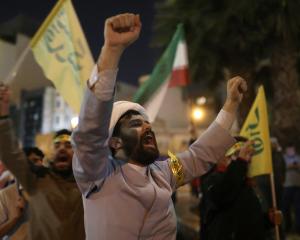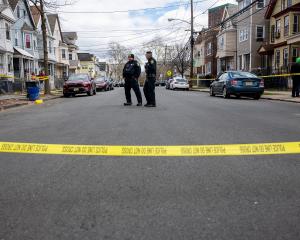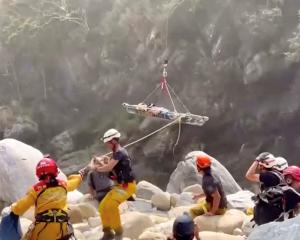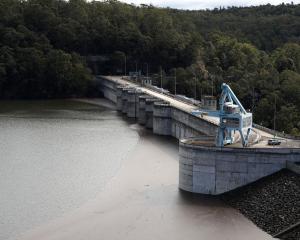
The leaders of the European Union's 27 member states, used to meeting in person at Brussels summits, joined a video conference after days of criticism that they had failed to close ranks on the crisis and were bickering over how to respond.
French officials said the show of solidarity was proposed by President Emmanuel Macron, who wanted the EU to echo the words of Mario Draghi, who as head of the European Central Bank pulled the euro zone back from the brink of collapse in 2012: "Whatever it takes".
"We will use all the tools at our disposal to make sure that the European economy weathers this storm," European Commission President Ursula von der Leyen told a news conference on Tuesday after the extraordinary summit of leaders, all of whom have now confirmed cases of coronavirus in their countries.
She said the European Commission, the executive arm of the EU, will set up a joint investment fund with firepower of €25 billion ($NZ45 billion) from existing resources to cushion the blow to vulnerable sectors of the bloc's economies.
However, the fund will have no fresh money, an EU official said, raising doubts about its effectiveness to provide a sufficient fiscal boost to counter a serious downturn.
Under the plan, EU states would use €7.5 billion of EU funds that national governments had not been able to spend due to bureaucratic complexities. Instead of being sent back to Brussels, the funds can be used to help the economy, the official said.
The €25 billion total would be reached by adding EU "structural funds" which had been already committed to EU countries under the current EU budget, the official said.
A diplomat said the plan was not discussed in detail during the video conference, but will be on the table at a meeting of euro zone finance ministers on Monday.
In addition, the Commission offered to provide this week new guidance on how to interpret fiscal rules and public subsidies regulations more leniently. This would allow EU governments to spend more national funds to help their economies.
'A LOT IS AT STAKE'
Divisions did not appear to be overcome, however, about the sharing of medical equipment needed to counter the health crisis.
France, Germany and the Czech Republic last week refused to lift controls on the export of protective gear to avoid shortages at home, despite a formal request for kit from Italy, which is reeling from an explosion of infections and deaths.
Leaders agreed "to task the Commission with analysing the needs and to come up with initiatives to prevent shortages," the chair of the meeting Charles Michel said after the video conference.
The EU executive is already coordinating joint procurement of equipment in short supply.
Earlier on Tuesday, Austria had unilaterally broken with the EU principle of free movement of people by denying entry to people arriving from Italy to slow the spread of the disease.
This is the first case of restrictions being placed on the free-travel Schengen area of 26 European countries since the outbreak of the virus, an echo of 2015, when a wave of migrants and refugees prompted several to close their borders.
Sharp differences over the influx of migrants strained the unity of the bloc and fanned eurosceptic views that the European project had evolved too far from its original aim of economic interdependence to an "ever closer" political union. Britain's recent exit from the EU was fuelled by such sentiment.
"These are really testing times for the EU," said Guntram Wolf, head of the Bruegel think tank in Brussels. "You better get this coordination right. Otherwise the citizens will be extremely angry. A lot is at stake."
Responses to the epidemic have so far varied widely across the EU, from the near-shutdown of everyday life in Italy and a ban on large gatherings in France to little more than public health advice in some countries.
Michel said leaders agreed on the need for a joint approach, closer coordination with the European Commission and daily consultations between health and interior ministers.
The European Commission's capacity to tackle the crisis is limited because responsibility for public health lies largely with member states.













